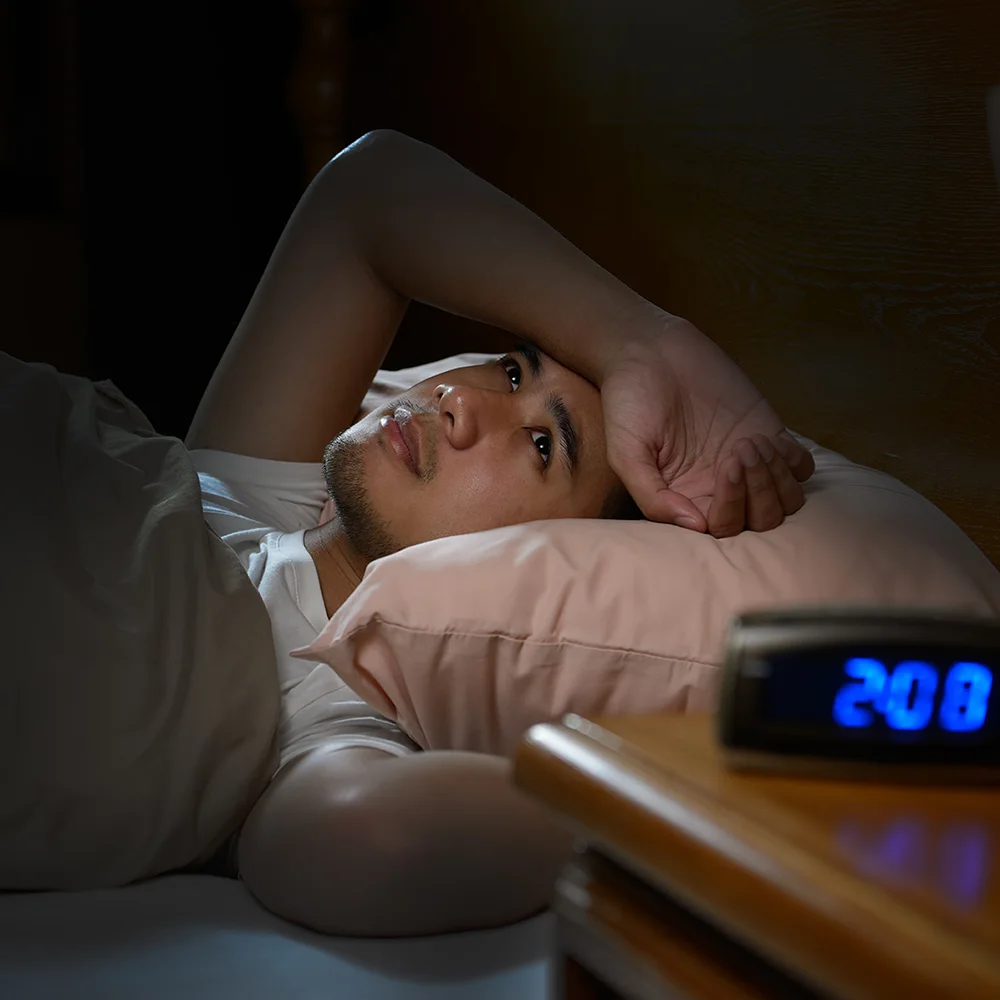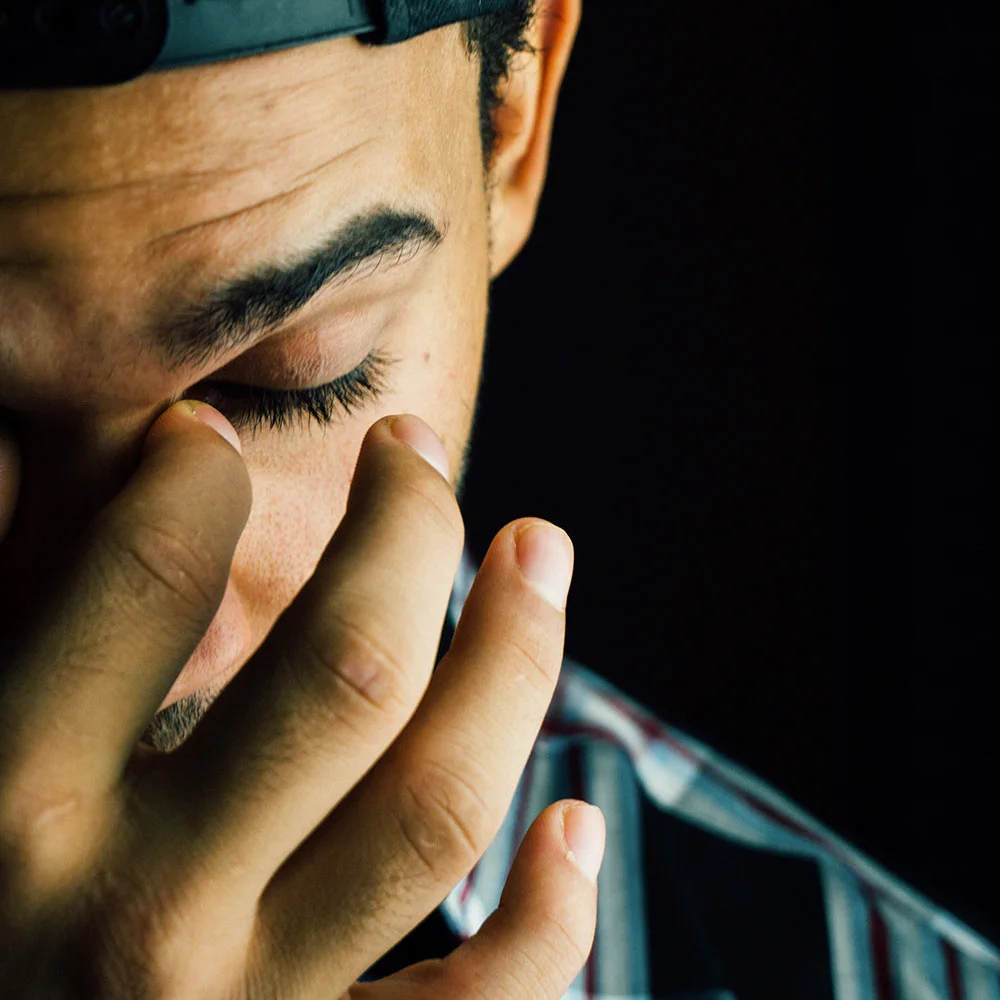Here's what we'll cover
Here's what we'll cover
Stress is a part of life. Just about everyone experiences it from time to time. And while we tend to talk about stress and stressors as bad things linked to health problems and burnout, that's not always the case. There's some evidence that a modest amount of stress can be helpful. For example, research in animals has found that short periods of stress may stimulate the brain in ways that promote learning and improved thinking (Kirby, 2013).
But too much stress is a problem. It can mess with how you think and feel, and it can raise your risk for many short-term or long-term medical problems (Yaribeygi, 2017).
What is stress management?
During periods of stress, your body responds in several interconnected ways.
Stress triggers the release of hormones such as adrenaline and noradrenaline. These fire up activities in your sympathetic nervous system (SNS), which speeds up your heart rate and blood pressure. It also stimulates your brain, your muscles, and your immune system.
Cortisol is another important stress hormone. It does a lot of things in your body. But one of its primary jobs is to manage your immune system. It also helps you marshal the energy your brain and body need to get you out of a stressful situation—whether you’re running from a bear or trying to finish an assignment before a deadline (Chu, 2020).
Stress management is the blanket term for stuff you can do to keep your body’s stress response from ramping up too much or too often (Worthen, 2020).
Why is stress management so critical?
While some stress is benign, too much stress can cause unhealthy changes inside your body. These changes raise your risk for all sorts of medical, psychological, or cognitive problems.
Some of the health risks linked to stress include (Yaribeygi, 2017; Chu, 2020):
Heart disease
Stroke
Poor immune functioning
Gut disorders
Problems sleeping
Adrenal disease
Depression (Lupien, 2018)
Anxiety (Lupien, 2018)
Alzheimer’s disease (Bisht, 2018)
Most of these conditions are linked to chronic stress. This is a kind of long-term stress that lasts for at least three to six months (Stinesen Kollberg, 2019).
There are many different causes of chronic stress. But some common ones include financial worries, unhappy relationships, or problems at work. Stress management techniques can help you avoid or limit the kind of persistent, all-the-time stress that causes or contributes to health problems (Worthen, 2020).
Seven powerful stress management techniques
The following techniques can help you manage your stress in a healthier way.
1. Live a healthy lifestyle
There’s ample evidence that a healthy mind and body are more resilient to the negative effects of stress. Unfortunately, there’s also evidence that stress can lead us away from helpful wellness behaviors and toward problem eating, problem substance use, or other bad habits (McKenzie, 2013).
While it’s much easier said than done, sticking with healthy habits can help you reduce and manage your stress levels. A healthy lifestyle generally means (Firth, 2020):
Getting enough sleep, usually defined as between 6 and 8 hours each night
Eating a healthy diet that features lots of fruits and vegetables
Regular physical activity (more on that below)
Avoiding tobacco and limiting your alcohol intake
There are whole books about the ins and outs of each of these topics. But the takeaway here is that by focusing on improving your overall health, you’ll also help protect your body from stress (McKenzie, 2013).
2. Practice deep breathing exercises
Your breath is a kind of backdoor to your nervous system. By taking control of your breath—by deepening it and slowing it down, for example—you can calm the fight-or-flight nervous system activity that ramps up in response to stress (Jerath, 2015).
There are many different breathing exercises to choose from. One that can help reduce stress is called box breathing. It involves four simple steps (Norelli, 2020):
Breathe in through your nose, slowly and deeply, for four seconds.
Hold that breath in for four seconds.
Breathe out slowly and completely for four seconds.
Pause for four seconds before starting over.
As you work through these steps, try to visualize drawing the four equal sides of a box. One of the benefits of box breathing is that you can do it anywhere and in any position. You can do it before, during, or after a stressful event (Norelli, 2020).
3. Try progressive muscle relaxation (PMR) therapy
Stress can make you feel wound up and tense. Letting go of that physical tension seems to counteract stress. That’s the goal of relaxation therapy, which research shows can help reduce stress (Nasiri, 2018).
There are lots of types of relaxation therapy. One of the most studied is called progressive muscle relaxation, or PMR. PMR involves clenching and then relaxing the muscles of your body in a slow, deliberate way. You can do this on your own or with the help of a guide—whether it’s a YouTube video, an app, or an in-person session with a therapist (Norelli, 2020).
Here's what PMR is like: Starting with your toes, clench them gently for a few seconds and then allow them to relax fully and deeply. Work your way up your legs and through the muscles of the rest of your body. (Norelli, 2020).
Research has found that doing PMR for 20 to 30 minutes daily is an effective remedy for stress and related conditions and can be particularly useful for people with anxiety (Kim, 2017).
4. Do mindfulness-based stress reduction (MBSR)
This is a cluster of techniques that harness mindfulness to help you manage stress.
Like some other forms of meditation, mindfulness teaches you to identify negative thoughts, emotions, and sensations as they occur. With practice, identifying these negative elements can give you more opportunities to reduce your brain and body’s reaction to stressful events or circumstances (Worthen, 2020).
In the beginning, you’ll need a guided mindfulness app, a therapist, or some other resource that can teach you the basics of mindfulness. Once you’re acquainted with mindfulness, MBSR can also involve breathing techniques, muscle relaxation, and other stress-lowering practices (Vøllestad, 2011).
5. Exercise
Regular exercise supports your health in many ways. And there’s evidence that pretty much any type of exercise—weight training, walking, running, tai chi, etc.—can combat stress (Jackson, 2013).
For example, research has found that 35 minutes of brisk aerobic exercise (fast walking or jogging), just three days a week, was enough to improve people’s scores on a survey designed to measure stress. They also showed heart-related improvements associated with reduced stress (Blumenthal, 2005). Researchers have also found that regular yoga practice is effective at combating stress (Riley, 2015).
It’s not clear exactly how exercise reduces stress. But there’s some evidence that regular exercise triggers hormone and brain-chemical shifts that counteract the negative effects of stress. Even short bouts of exercise—just 10 to 15 minutes, once or twice a day—may be an effective way to manage stress (Jackson, 2013).
6. Use guided imagery
Guided imagery is another form of relaxation therapy that can help you manage stress. It involves imagining a place that makes you feel calm and at ease—such as your favorite hiking trail or a sunny beach. By focusing on images of that peaceful setting, your brain can untangle itself from thoughts that fuel your stress (Norelli, 2020).
At least initially, this therapy requires some kind of guide—an online video, an app, or a therapist. Sit or lie down in a comfortable place, and try to take slow and calm breaths. Now imagine that tranquil place and all of its sights, sounds, smells, and other details. That’s what guided imagery is all about (Norelli, 2020).
7. Try cognitive-behavioral therapy (CBT)
CBT is a specific type of psychotherapy. Many experts now consider it the “gold standard” in psychotherapy because so much research has found it beneficial (David, 2018).
CBT is all about identifying the thoughts and events that give rise to your stress. It also involves figuring out strategies to help control that stress. You can’t do this alone; CBT involves working with a trained therapist (Carpenter, 2019).
Importantly, CBT is not about stopping or blocking stress from happening. Instead, it’s about changing how you react to stressful experiences so that they don’t lead to big swells of fear, concern, and the physical symptoms that accompany stress (Chand, 2020).
The benefits of stress management
Again, managing stress can help lower your risks for all the health issues mentioned above. Also, it’s important to understand that stress can build slowly over time (Sisley, 2010).
As the saying goes, an ounce of prevention is worth a pound of cure. It’s a good idea to take steps to manage your stress early before it becomes severe or chronic. The longer you wait, the more your stress and its related risks may build up.
DISCLAIMER
If you have any medical questions or concerns, please talk to your healthcare provider. The articles on Health Guide are underpinned by peer-reviewed research and information drawn from medical societies and governmental agencies. However, they are not a substitute for professional medical advice, diagnosis, or treatment.
Bisht, K., Sharma, K., & Tremblay, M. È. (2018). Chronic stress as a risk factor for Alzheimer's disease: Roles of microglia-mediated synaptic remodeling, inflammation, and oxidative stress. Neurobiology of Stress , 9 , 9–21. doi: 10.1016/j.ynstr.2018.05.003. Retrieved from https://www.sciencedirect.com/science/article/pii/S2352289518300079
Blumenthal, J. A., Sherwood, A., Babyak, M. A., Watkins, L. L., Waugh, R., Georgiades, A., et al. (2005). Effects of exercise and stress management training on markers of cardiovascular risk in patients with ischemic heart disease: a randomized controlled trial. JAMA , 293 (13), 1626–1634. doi: 10.1001/jama.293.13.1626. Retrieved from https://jamanetwork.com/journals/jama/fullarticle/200639
Carpenter, J. K., Andrews, L. A., Witcraft, S. M., Powers, M. B., Smits, J., & Hofmann, S. G. (2018). Cognitive behavioral therapy for anxiety and related disorders: A meta-analysis of randomized placebo-controlled trials. Depression and Anxiety , 35 (6), 502–514. doi: 10.1002/da.22728. Retrieved from https://www.ncbi.nlm.nih.gov/pmc/articles/PMC5992015/
Chand, S. P., Kuckel, D. P., & Huecker, M. R. (2020). Cognitive behavior therapy. In StatPearls . Retrieved from https://www.ncbi.nlm.nih.gov/books/NBK470241/
Chu, B., Marwaha, K., Sanvictores, T., & Ayers, D. (2020). Physiology, stress reaction. In StatPearls . Retrieved from https://www.ncbi.nlm.nih.gov/books/NBK541120/
David, D., Cristea, I., & Hofmann, S. G. (2018). Why cognitive behavioral therapy is the current gold standard of psychotherapy. Frontiers in Psychiatry , 9 , 4. doi: 10.3389/fpsyt.2018.00004. Retrieved from https://www.frontiersin.org/articles/10.3389/fpsyt.2018.00004/full
Firth, J., Solmi, M., Wootton, R. E., Vancampfort, D., Schuch, F. B., Hoare, E., et al. (2020). A meta-review of "lifestyle psychiatry": the role of exercise, smoking, diet and sleep in the prevention and treatment of mental disorders. World Psychiatry: Official Journal of the World Psychiatric Association (WPA) , 19 (3), 360–380. doi: 10.1002/wps.20773. Retrieved from https://onlinelibrary.wiley.com/doi/full/10.1002/wps.20773
Jackson, E. (2013). FACSM stress relief. ACSM’s Health & Fitness Journal , May/June 2013, 17(3), 14-19. doi: 10.1249/FIT.0b013e31828cb1c9. Retrieved from https://journals.lww.com/acsm-healthfitness/fulltext/2013/05000/stress_relief__the_role_of_exercise_in_stress.6.aspx
Jerath, R., Crawford, M. W., Barnes, V. A., & Harden, K. (2015). Self-regulation of breathing as a primary treatment for anxiety. Applied Psychophysiology and Biofeedback , 40 (2), 107–115. doi: 10.1007/s10484-015-9279-8. Retrieved from https://philarchive.org/archive/RAVSOB
Kim, H. S., & Kim, E. J. (2018). Effects of relaxation therapy on anxiety disorders: A systematic review and meta-analysis. Archives of Psychiatric Nursing , 32 (2), 278–284. doi: 10.1016/j.apnu.2017.11.015. Retrieved from https://pubmed.ncbi.nlm.nih.gov/29579524/
Kirby, E. D., Muroy, S. E., Sun, W. G., Covarrubias, D., Leong, M. J., Barchas, L. A., & Kaufer, D. (2013). Acute stress enhances adult rat hippocampal neurogenesis and activation of newborn neurons via secreted astrocytic FGF2. eLife , 2 , e00362. doi: 10.7554/eLife.00362. Retrieved from https://elifesciences.org/articles/00362#s3
Lupien, S. J., Juster, R. P., Raymond, C., & Marin, M. F. (2018). The effects of chronic stress on the human brain: From neurotoxicity, to vulnerability, to opportunity. Frontiers in Neuroendocrinology , 49 , 91–105. doi: 10.1016/j.yfrne.2018.02.001. Retrieved from https://www.sciencedirect.com/science/article/abs/pii/S0091302218300098
McKenzie, S. H., & Harris, M. F. (2013). Understanding the relationship between stress, distress and healthy lifestyle behaviour: a qualitative study of patients and general practitioners. BMC Family Practice, 14,
doi: 10.1186/1471-2296-14-166. Retrieved from https://bmcprimcare.biomedcentral.com/articles/10.1186/1471-2296-14-166
Nasiri, S., Akbari, H., Tagharrobi, L., & Tabatabaee, A. S. (2018). The effect of progressive muscle relaxation and guided imagery on stress, anxiety, and depression of pregnant women referred to health centers. Journal of Education and Health Promotion , 7 , 41. doi: 10.4103/jehp.jehp_158_16. Retrieved from https://www.ncbi.nlm.nih.gov/pmc/articles/PMC5868227/
Norelli , S. K., Long, A., & Krepps, J. M. (2020). Relaxation techniques. In StatPearls . Retrieved from https://www.ncbi.nlm.nih.gov/books/NBK513238/
Riley, K. E., & Park, C. L. (2015). How does yoga reduce stress? A systematic review of mechanisms of change and guide to future inquiry. Health Psychology Review , 9 (3), 379–396. doi: 10.1080/17437199.2014.981778. Retrieved from https://www.tandfonline.com/doi/abs/10.1080/17437199.2014.981778
Sisley, R., Henning, M. A., Hawken, S. J., & Moir, F. (2010). A conceptual model of workplace stress: The issue of accumulation and recovery and the health professional. New Zealand Journal of Employment Relations, 35 (2), 3–15. doi: 10.3316/informit.824267730697353. Retrieved from https://search.informit.org/doi/abs/10.3316/INFORMIT.824267730697353
Stinesen Kollberg, K., Wiley, J. F., Ross, K. M., Jorge-Miller, A., Hammen, C., Weihs, K. L., & Stanton, A. L. (2019). Chronic stress in vocational and intimate partner domains as predictors of depressive symptoms after breast cancer diagnosis. Annals of Behavioral Medicine: A Publication of the Society of Behavioral Medicine , 53 (4), 333–344. doi: 10.1093/abm/kay045. Retrieved from https://www.ncbi.nlm.nih.gov/pmc/articles/PMC6594296/
Worthen, M., & Cash, E. (2020). Stress management. In StatPearls . Retrieved from https://www.ncbi.nlm.nih.gov/books/NBK513300/
Yale Medicine (Yale Medicine). (n.d.) Chronic stress. Yale Medicine (US) . Retrieved June 17, 2021 from https://www.yalemedicine.org/conditions/stress-disorder
Yaribeygi, H., Panahi, Y., Sahraei, H., Johnston, T. P., & Sahebkar, A. (2017). The impact of stress on body function: A review. EXCLI Journal , 16 , 1057–1072. doi: 10.17179/excli2017-480. Retrieved from https://www.ncbi.nlm.nih.gov/pmc/articles/PMC5579396/










